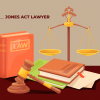
Personal injury is a national issue due to increased accidents across the country. Personal injury sufferers experience financial, physical, and emotional distress. Nevertheless, seeking personal injury compensation in a no-fault state is somewhat risky. Michigan, Florida, Minnesota, New York, Kansas, North Dakota, Kentucky, Illinois, New Jersey, and Massachusetts are some no-fault states. An experienced personal injury lawyer is needed to meet your expectations.
However, it should be noted that the idea of the no-fault system is to find a balance using insurance policies for lost income and medical bills.
This article discusses personal injury claims in no-fault states and the advantages of bringing a lawsuit in different scenarios:
Understanding a No-Fault State
Drivers in a no-fault state must carry Personal Injury Protection (PIP) insurance as part of their car insurance policy.
Regardless of who is responsible for the accident, this coverage ensures just compensation for lost income and medical bills.
PIP insurance is also significant in terms of offering quick financial help to the injured in no-fault states. It minimizes the need for round-the-clock court battles to assess fault.
It is thus crucial to know about the importance and functions of PIP insurance in receiving adequate compensation for medical bills and lost income when navigating no-fault states.
When You Can Sue in a No-Fault State
While PIP insurance may provide recompense to victims for losses in an accident, it may be pitifully inadequate for victims who experience permanent injury or loss of life due to the negligence or carelessness of the at-fault party.
More than what the PIP insurance pays can be obtained in such a situation.
The primary character of the PIP is to reimburse minor injuries like bruises and lacerations. Hence, you need to prepare yourself to go for lawsuit prospects for serious injuries and fatalities.
The circumstances on which you are likely to initiate a lawsuit in a no-fault state after an automobile accident are given below:
1. Severe Harm
You can sue the party who caused the accident for more damages if your injury is above a law-established threshold. Such thresholds differ from one state to another.
Hence, engage a local personal injury attorney to check if your injuries warrant a suit in the region.
2. Driving Under the Influence
If a person driving under the influence of alcoholic drinks or toxic substances causes an accident, you can sue him.
But you must get proof from police records of the person’s inebriation in order to determine liability.
3. Negligence or Recklessness
PIP insurance may be sufficient for an accident caused by daily rational error. But if the accident is caused by negligence or recklessness, e.g., speeding, reckless turns, or tailgating, you can sue the individual for negligence or recklessness.
4. Fatality from Negligence
If your loved one or relative is murdered by a careless driver, you can sue the latter for wrongful death. You will get the careless driver to pay you for your loss.
But in such a case, you need to consult an experienced personal injury attorney to understand your remedy and how to maximize the process.
Understanding the Liable Parties
You must consider several factors to know the best time and individual(s) to sue for an auto accident in a no-fault state.
Before initiating the legal process, you must identify the guilty party responsible for your lost income, emotional pain, suffering, and medical expenses.
The peculiarity of your case and the laws of your state will determine the parties to hold responsible.
“Furthermore, gathering crucial documents to prove your case is crucial. The evidence you must gather and present includes medical records, witness statements, financial documents, and accident reports.
You need these documents to validate your claims and receive significant compensation,” says personal injury attorney Michael Ponce of Ponce Law Tennessee Car & Truck Injury Attorneys.
Some auto personal injury lawsuits have multiple liable parties. Hence, collaborate with your attorney to know each party’s scope of involvement and how to hold them responsible appropriately. Possible defendants in an auto accident claim include:
- Other Negligent Party or Motorist—persons fingered in an official investigation or criminal proceeding after the incident
- Government Entities—government agencies can bear liability if hazardous road conditions contributed to the mishap
- Vehicle Manufacturer—You can hold a manufacturer liable if a manufacturing fault significantly contributes to the accident
It is challenging to prove liability in a no-fault state because you must establish several factors for your claim to scale through.
For instance, you must demonstrate that your injuries are not within the PIP coverage or that they exceed a given financial threshold. You must also prove that you suffered disability due to the accident.
The Damages You Can Demand in a Personal Injury Lawsuit
You are entitled to these damages if you prove your personal injury claim successfully:
1. Medical Bills
This compensation reimburses you for everything you have spent on your health because of the accident. It covers the PIP payments you already have. Your attorney will also factor in future medical needs. The essence of this compensation is to ensure the defendant bears the burden of your medical needs.
2. Economic Damages
These damages are for losses beyond the ambit of personal insurance. They include loss of earning power and destruction of property. The defendant or their insurer will pay for these quantifiable damages.
3. Non-Economic Damages
These are intangible damages. Different states have their peculiar methods of determining the worth of non-economic damages. For instance, some jurisdictions determine them by multiplying the victim’s economic or medical losses. Others use a “pain scale” to determine your level of suffering.
4. Punitive Damages
Authorities rarely award these damages; their primary essence is deterring others. It punishes the guilty party for their reckless act. This punishment aims to sanitize society.
Final Words
Dealing with personal injury issues in no-fault jurisdictions is complex as you must delicately balance PIP coverage and legal means.
You must assess thresholds and jurisdictional policies to determine the potency of your case before a judge or jury.
That is why you must seek guidance from a knowledgeable personal injury attorney who understands the law and how to interpret it to your advantage.
Allowing a legal professional to handle your case bolsters your chances of a positive outcome.
They will provide invaluable guidance and help package your case to withstand multi-level scrutiny. A personal injury attorney is your best ally in receiving worthwhile compensation.
Read Also:
- Who Gets the Money in a Wrongful Death Lawsuit
- What is Probate and How Can a Lawyer Help With Probate Litigation?
- The Ultimate Guide to Free Law Study Materials for Students on a Budget











0 Reply
No comments yet.